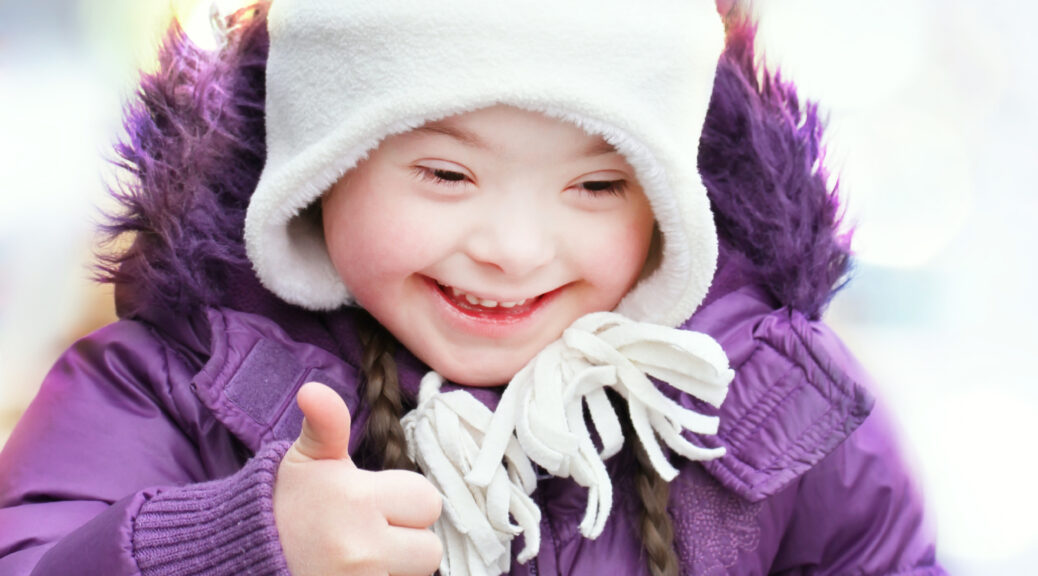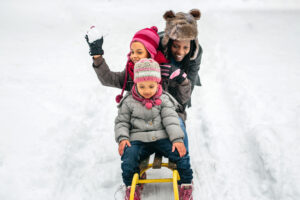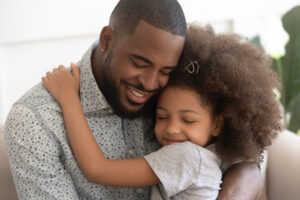Supporting Children’s Mental Health During the Holidays

With sleigh bells ringing, carolers singing and snow glistening, many of us look forward to the holidays with anticipation. For many people, this is a season of full hearts, joy, laughter, family and friends. But for others, this festive time of year can bring about anxiety, stress and other mental health challenges. This is true for children too.
For some young people, the holiday season might be filled with sparkly lights and yummy treats, but for others, it might bring about feelings of sadness and isolation.
Camber Children’s Mental Health is here for you, providing resources and support to help youth who may struggle with their mental health! Learn why children may struggle during the holidays, what triggers might cause mental health challenges, how caregivers can help and what to do if additional care is needed.
Why Might Children Struggle with Mental Health Challenges During the Holidays?
As much as we look forward to the holidays, it is also when we feel the impact of life’s biggest changes. Big transitions — like marriages, divorces, loss, welcoming a new child, health issues, living in a new home or celebrating with a foster family — all feel weightier during the holidays, bringing about more intense mental health struggles for children. For example, if a divorce took place over the summer, the Thanksgiving table might have more empty chairs than in years past.
The holiday blues can also happen because of generalized stress, physical/mental fatigue, pressures and expectations, travel nerves and more. Children thrive with routines, and the holidays tend to shake up the typical rhythms.
Studies show that anxiety and depression increase during this time of year. However, each case is specific to the child and triggers are unique, so it’s up to caregivers to navigate these experiences.
Potential Mental Health Triggers Brought on by the Holidays
Gaining awareness and understanding of the child can go miles when helping them move through their triggers. Triggers are emotional or circumstantial situations that cause a mental and physical response.
“Sometimes, anxiety is based on trauma, depression or biological traits, and it’s really about getting to know each child individually and what triggers anxiety for them specifically,” explains Erin Connelly Marceau, Executive Director with Camber Wichita.

Depending on which mental health struggles a child faces, it will likely determine how well a child handles the holiday season. Understanding some of the most common triggers can be helpful when working with children’s mental health.
Here are a few:
- Time: Depending on trauma history and if there’s been a traumatic event around the holiday, then the time of year can trigger a traumatic emotional reaction. For example, if a young person has entered foster care, this time of year may bring back tough memories.
- Grief: When someone is experiencing grief, the time around the holiday can trigger a lot of emotions and challenges. This is especially true when they’re navigating through loss and trying to “celebrate” the season without that special person. And grief isn’t always a result of death; children can experience loss for countless reasons.
- Loss of Control: Getting swept up in the hustle and bustle of the holiday season has its perks, but for children, this can increase feelings of losing control. For a child in the foster system or newly adopted, this time can increase those feelings. This might create noticeable mental health challenges.
- Perceived Shortcomings: When visualizing the standard representation of a happy holiday, there are usually gatherings, gifts and happiness. But this is often not a reality. Which highlights areas where children think elements are missing from their lives.
How Parents and Caregivers Can Help
When children are feeling triggered, or extra holiday stress is too much and mental health suffers, it’s time to look at different approaches for helping them cope. First, Marceau encourages caregivers to be clear about expectations and schedules surrounding holiday events. “Make sure children know if, when, where and for how long they’ll get to spend time with their loved ones,” she explains. “The more clarity and sense of control that we can give children, the better.”
Second, try putting some of the control back in the hands of the child. This could look like including children in the decision-making processes for gatherings, food preparation or entertainment. For example, choices can be something as complex as determining which holiday will be spent with which parent, or something as simple as asking if the child would rather eat turkey or ham.
Third, remember that we all need connection, especially surrounding the holidays. Finding ways to create moments of  meaningful connections between caregivers and children, generating the warm feelings that children love.
meaningful connections between caregivers and children, generating the warm feelings that children love.
Here are some ideas to build and reinforce connections to help children feel the love around the holidays!
- Play fun games
- Watch a festive movie
- Drink hot chocolate
- Bake together
- Do holiday crafts
- Decorate the house
- Choose special gifts together
Finally, if there’s an extra concern, you can preemptively start working with a therapist to build a plan. This can minimize any potential challenges. Another way to get ahead of possible stress is setting up a therapy session for very soon after the holiday. This will provide your child the opportunity to process any emotions that might have arisen during the holidays.
Signs that Children May Need Additional Therapeutic Support
During times of additional change or stress, like the holidays, children may grapple with their mental health and wellness more than at other times of the year, although that’s not always the case. It’s natural to occasionally feel waves of sadness, disappointment, loneliness and anger, but longer-lasting emotions may snowball into anxiety and depression that need attention. As a parent/caregiver, you’ll want to keep an eye out for a few tell-tale signs that your children may need professional care, support or treatment.
These signs include:
- Thoughts or actions of hurting themselves or others
- Thoughts of suicide
- Aggressive behavior: These children aren’t using or don’t have the coping skills to manage their emotions and lash out.
- Substance use
- Struggling in school
- Changing relationship dynamics with friends or family
- Personality shifts
- Isolating themselves
 Guardians should be aware when a child is going through a tough moment or if the situation is becoming too much and more help is needed. “As humans, we’re all going to go through some sort of mental health challenge or experience times where anxiety, depression, grief or trauma arise,” Marceau says. “Most children might have a few off days, but when the changes or behaviors are ongoing, that’s the time to ask for more help.”
Guardians should be aware when a child is going through a tough moment or if the situation is becoming too much and more help is needed. “As humans, we’re all going to go through some sort of mental health challenge or experience times where anxiety, depression, grief or trauma arise,” Marceau says. “Most children might have a few off days, but when the changes or behaviors are ongoing, that’s the time to ask for more help.”
Camber Children’s Mental Health provides professional care and support, regardless of the time of year. If a child is struggling with any of the above mental health-related signs, our team of professionals can assist. Our innovative programs and services help children achieve mental health and wellness and make an impact in the lives of those we serve. Find a location near you, today.






